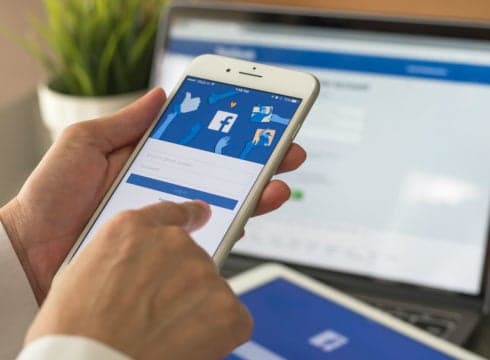The parliamentary panel questioned the scope of human intervention in social media
The companies will respond in writing
Facebook failed to provide details about the framework which applies to its platform
Inc42 Daily Brief
Stay Ahead With Daily News & Analysis on India’s Tech & Startup Economy
The 31-member parliamentary panel of the Indian government summoned Facebook, WhatsApp and Instagram representatives yesterday (March 6) to scrutinise the steps taken by these social media companies ahead of General Election in May 2019. The discussions were led on the topic of ‘safeguarding citizens rights on social/online news media platforms’.
Media reports citing sources said that the parliamentary panel had questioned the representatives over three keys issues—allegations that they acted as a lobby group in various countries, the scope of human intervention in their processes and whether or not they had ombudsmen in place for grievance redressal.
They told the companies that they cannot operate like news media without accountability. The companies will respond in writing, while no date has been set for next hearing. Anurag Thakur, chairman of the parliamentary committee, reportedly said, “We have asked the social media platforms to ensure that (the platforms are) not used to create division in society, incite violence, pose threat to India’s security or let foreign powers meddle in Indian elections.”
He added, “These three platforms admitted that there was scope for corrective measures and they would undertake these measures at the earliest. The three platforms have said they will be in touch with the Election Commission and work on the information provided by the ministries concerned.”
It is being reported that Facebook has given a commitment to the panel that identity, location and who paid for advertisements during elections will be available on a special web page for users. In December 2018, Facebook said it will vet every political advertiser on its platform. An advertiser who wants to run an ad in India related to politics will need to first confirm their identity and location along with details about who placed the ad.
The company will show a disclaimer on all political ads that provide more information about who’s placing the ad and an online searchable Ad Library for anyone to access. The policy was set to come into effect from February 21, 2019.
Facebook reportedly told the committee members that it was a “hybrid company” and failed to clearly answer which regulatory framework apply to their content, advertising and marketing operations in India.
It also reportedly admitted it doesn’t “always get it right” regarding content moderation on its platform. The sense of the committee members was reported to be that “despite all the apologies for past mistakes that Facebook has made, it still seems unwilling to be properly scrutinised and transparent.”
CEO Mark Zuckerberg gave his testimony explaining its business Cambridge Analytica debacle to the US Congress last year.
All members of the Committee expressed that they are unconvinced that Facebook and its employees are behaving neutrally, the report said.
Facebook along with its group companies was summoned for the panel after the parliamentary panel hearing on February 25, where Twitter was represented by Colin Crowell, head of global policy and philanthropy, and the company was asked to engage more actively with the Election Commission and respond to fake news and inflammatory posts in “real time” as the country heads into general elections.
{{#name}}{{name}}{{/name}}{{^name}}-{{/name}}
{{#description}}{{description}}...{{/description}}{{^description}}-{{/description}}
Note: We at Inc42 take our ethics very seriously. More information about it can be found here.


